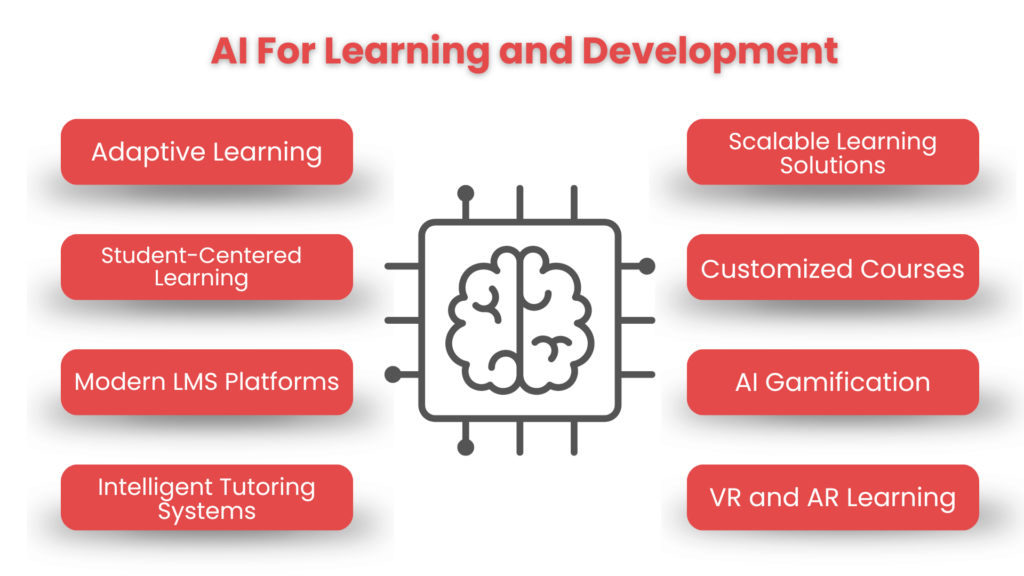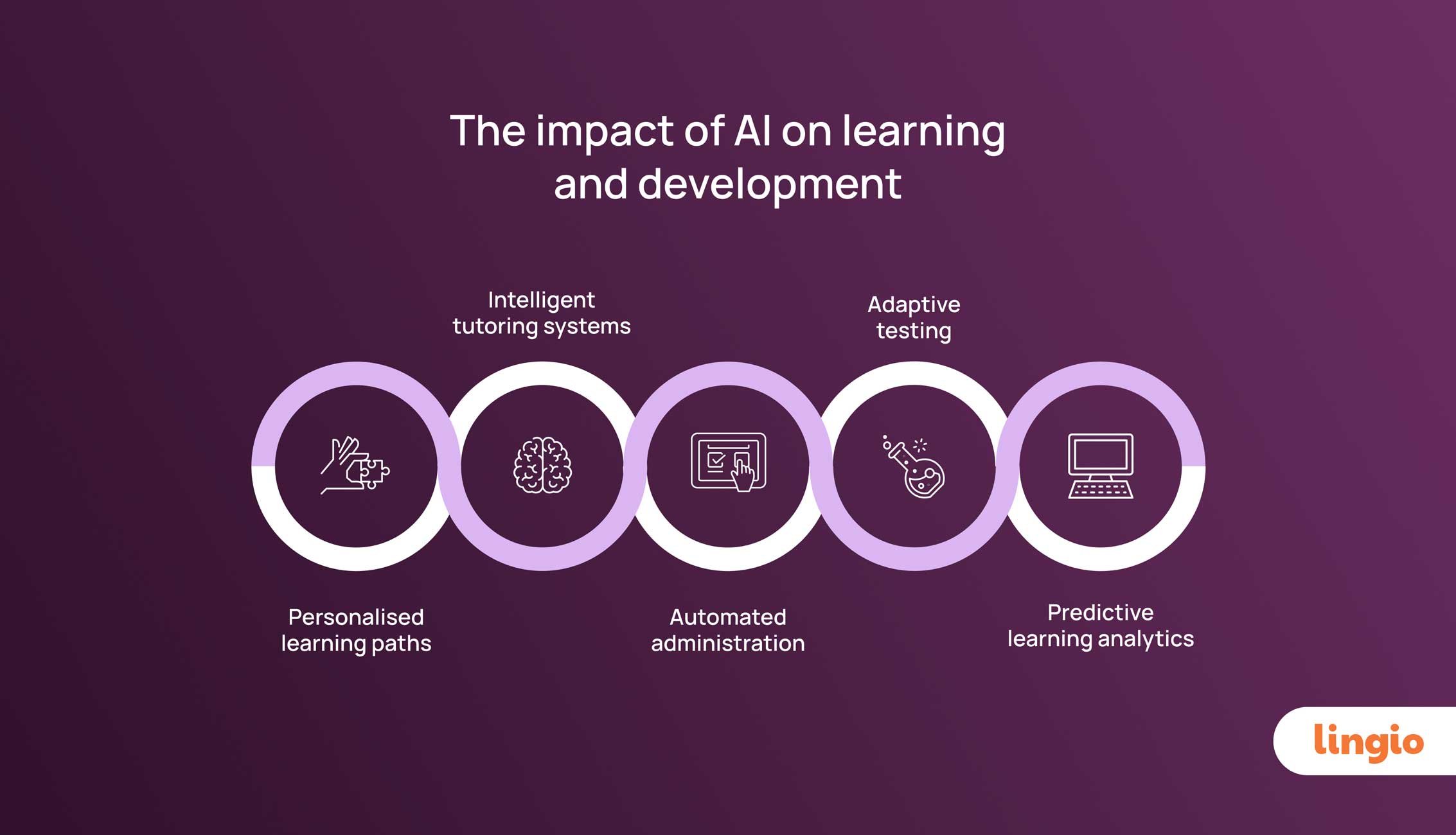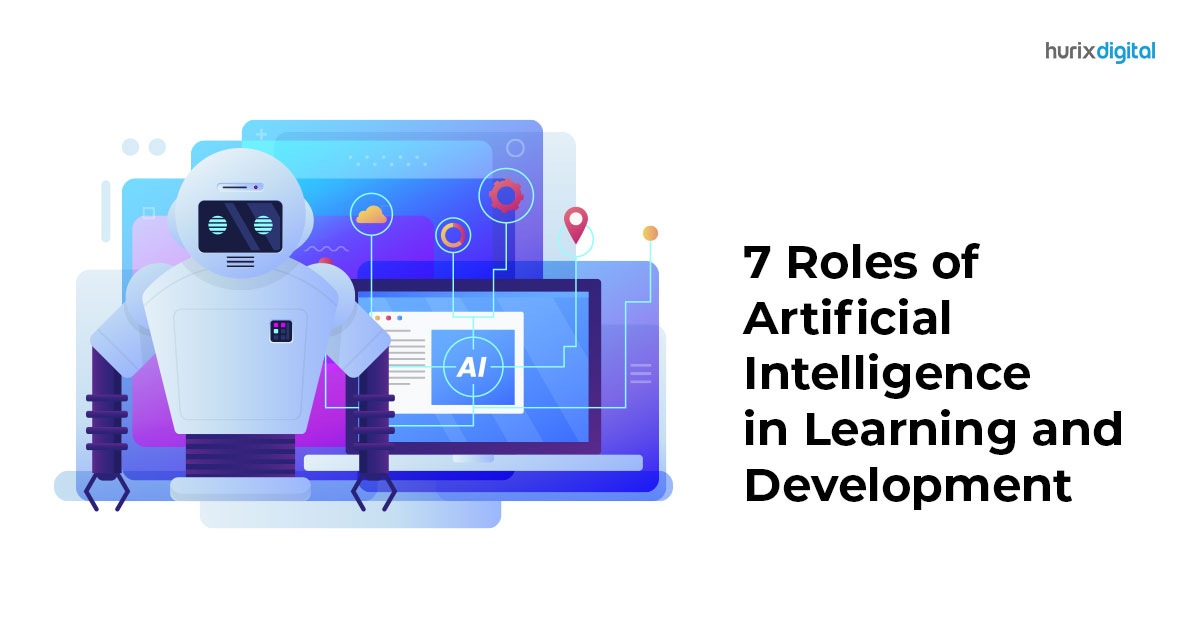The Role of AI for Learning & Development: Revolutionizing Education
Artificial Intelligence (AI) is transforming many fields, including learning and development. Its impact is profound and far-reaching.
AI has started to reshape how we learn and grow. From personalized learning paths to intelligent tutoring systems, AI brings new opportunities. It helps learners access customized content suited to their needs. This technology also supports trainers by providing data-driven insights.
As a result, learning becomes more effective and engaging. Organizations can now enhance their training programs with AI tools. The role of AI in learning and development is expanding rapidly. Understanding its potential can help you stay ahead in this evolving landscape. Dive in to explore how AI is making a difference in education and training.

Credit: hyperspace.mv
AI In Personalized Learning
Artificial Intelligence (AI) is revolutionizing many sectors, and education is no exception. When it comes to personalized learning, AI is a game-changer. It offers tailored educational experiences that adapt to the needs and pace of each learner. This means students get a learning journey designed just for them, enhancing their understanding and retention of information. Let’s dive into how AI is making personalized learning a reality.
Tailored Learning Paths
Have you ever felt lost in a classroom because the material was either too easy or too hard? AI can fix that! With AI, each student gets a customized learning path. The system analyzes the student’s strengths and weaknesses and provides resources that match their level. For example, if a student excels in math but struggles with English, AI will suggest more practice in English and advanced problems in math. This way, learning becomes more efficient and enjoyable.
Here’s how it works:
- Data Collection: AI gathers data from quizzes, assignments, and interactions.
- Analysis: The data is analyzed to understand the student’s learning style and preferences.
- Recommendations: Based on the analysis, AI suggests resources like videos, articles, and exercises.
This approach ensures that no student is left behind, and everyone progresses at their own pace. Imagine having a tutor who knows exactly what you need to learn next – that’s the power of AI!
Adaptive Assessments
Traditional tests can be stressful and don’t always reflect a student’s true abilities. AI changes this by offering adaptive assessments. These tests adjust in real-time based on the student’s performance. If a student answers a question correctly, the next question will be slightly harder. If they struggle, the following question will be easier.
Why is this beneficial?
- Accuracy: The test gives a more accurate measure of the student’s knowledge.
- Confidence: Students feel more confident because the test adapts to their level.
- Engagement: The test is less boring because it’s tailored to the student’s abilities.
For instance, think about a video game. You wouldn’t want to play a game that’s too easy or too hard, right? Adaptive assessments work the same way, keeping students engaged and motivated.
In conclusion, AI is transforming personalized learning by creating tailored learning paths and adaptive assessments. These advancements make education more accessible, engaging, and effective. The future of learning is bright with AI leading the way!

Credit: samelane.com
AI-powered Teaching Assistants
Imagine having a teaching assistant who is always available, never gets tired, and can answer any question you have. Sounds like a dream, right? Well, with the advent of AI-powered teaching assistants, this dream is quickly becoming a reality. AI is revolutionizing the way we learn and develop new skills. Let’s dive into some of the incredible benefits that AI-powered teaching assistants offer.
24/7 Student Support
One of the biggest advantages of AI teaching assistants is their ability to provide 24/7 support. Unlike human teachers, AI doesn’t need sleep. If you have a question at 3 AM, an AI assistant can help you out. This is especially helpful for students in different time zones or those with unpredictable schedules.
For instance, consider a student struggling with a math problem late at night. Instead of waiting until the next class or tutoring session, they can get immediate assistance from an AI tool. This can significantly enhance the learning process and ensure that students don’t fall behind.
Automated Grading
Grading can be a tedious and time-consuming task for educators. Enter automated grading, another fantastic feature of AI-powered teaching assistants. These smart systems can quickly and accurately grade assignments, quizzes, and tests.
Here are some benefits of automated grading:
- Speed: Grades are available almost instantly.
- Accuracy: AI reduces human errors in grading.
- Consistency: Every student is graded by the same standard.
With automated grading, teachers can spend more time on personalized instruction and less time on administrative tasks. Plus, students receive faster feedback, which is crucial for their learning journey.
In conclusion, AI-powered teaching assistants are transforming education. They offer round-the-clock support and streamline grading, making learning more efficient and accessible. As AI technology continues to advance, we can expect even more innovative solutions in the realm of education.
Enhancing Student Engagement
Ever wondered why some students seem glued to their screens while others struggle to stay awake? The secret may lie in how engaging the learning experience is. AI is revolutionizing the way we approach student engagement. By making learning interactive and fun, AI helps keep students interested and motivated. Let’s dive into two key ways AI is enhancing student engagement: through interactive learning tools and gamification.
Interactive Learning Tools
Remember the days when learning was all about textbooks and lectures? Those days are fading fast. Now, AI brings interactive learning tools that make education more dynamic and hands-on. These tools allow students to learn by doing, not just by reading or listening.
For example, AI-powered virtual labs let students conduct experiments without needing a physical lab. They can mix chemicals, dissect virtual frogs, or even explore the human body in 3D. This kind of hands-on learning helps students understand complex concepts better. Plus, it’s much more fun than just reading a textbook!
Another great tool is the AI tutor. Imagine having a tutor available 24/7, ready to help with any question. AI tutors can provide personalized feedback and adapt lessons to suit each student’s learning pace. This ensures that no student is left behind, making learning more inclusive.
Gamification
Who doesn’t love games? Gamification is the process of adding game-like elements to non-game activities. In education, this means turning lessons into games to make learning more exciting.
AI helps create personalized learning games that suit each student’s interests and skill levels. These games often include points, badges, and leaderboards, which motivate students to keep learning. It turns out that a little friendly competition can do wonders for engagement!
For instance, a language learning app might use AI to create a game where students earn points for correctly using new vocabulary. Or a math app might include challenges that students can complete to unlock new levels. These elements keep students coming back for more, transforming learning from a chore into an adventure.
| Interactive Learning Tools | Gamification |
|---|---|
| Virtual labs, AI tutors | Points, badges, leaderboards |
| Hands-on learning experiences | Personalized learning games |
In conclusion, AI is making learning more engaging by providing interactive tools and incorporating gamification. These innovations not only make learning more fun but also help students understand and retain information better. As AI continues to evolve, we can expect even more exciting developments in the world of education.
Data-driven Insights
Data-driven insights play a crucial role in learning and development. They help organizations understand employee performance and predict future trends. AI tools collect and analyze vast amounts of data. This provides actionable insights to improve training programs and boost productivity.
Performance Analytics
Performance analytics uses AI to track and measure employee progress. It identifies strengths and areas for improvement. This data helps managers tailor training programs. Employees receive the support they need. Real-time feedback allows for quick adjustments. This leads to continuous improvement.
Predictive Analysis
Predictive analysis uses historical data to forecast future performance. AI identifies patterns and trends. This helps organizations prepare for upcoming challenges. It can predict skill gaps and training needs. This ensures employees are ready for future tasks. It also helps in planning career development paths.
Future Of AI In Education
As we step into the future, AI is paving the way for a revolutionary shift in education. Imagine a classroom where lessons are tailored to each student’s needs, and where teachers have AI-powered tools to enhance their teaching methods. The future of AI in education is not just a distant dream, but a rapidly approaching reality.
Potential Challenges
While the prospects of AI in education are promising, there are several challenges that need to be addressed. Firstly, there is the issue of accessibility. Not all schools have the budget to incorporate advanced AI technologies. This could lead to a widening gap between well-funded and underfunded schools.
Additionally, privacy concerns are significant. With AI collecting vast amounts of data on students, ensuring this information is kept secure is crucial. We must ask ourselves: how do we protect our students’ data from falling into the wrong hands?
Lastly, there’s the potential for job displacement. Teachers may worry that AI will replace them. However, it is essential to remember that AI is a tool to assist, not replace educators.
Opportunities For Growth
Despite these challenges, the opportunities for growth are immense. AI can personalize learning experiences, making education more effective and enjoyable. For instance, AI can identify areas where students struggle and provide targeted resources to help them improve.
- Adaptive Learning: AI can adapt lessons to fit each student’s pace and learning style.
- Administrative Efficiency: AI can handle administrative tasks, giving teachers more time to focus on teaching.
- Enhanced Engagement: Interactive AI tools can make learning more engaging and fun.
Moreover, AI can provide valuable insights into student performance through detailed analytics. This data-driven approach can help educators make informed decisions to enhance the learning experience.
In conclusion, while the future of AI in education presents some challenges, the potential benefits far outweigh the concerns. By addressing these issues head-on, we can harness the power of AI to create a more effective and inclusive educational landscape. Who wouldn’t want a future where every student has the opportunity to succeed?

Credit: www.lingio.com
Frequently Asked Questions
What Is The Role Of Artificial Intelligence In Learning And Development?
Artificial intelligence personalizes learning experiences, automates administrative tasks, and enhances training programs through adaptive learning and data analysis. AI also provides real-time feedback and supports continuous skill development.
How Can AI Help Training And Development?
AI enhances training by personalizing learning experiences, automating administrative tasks, providing real-time feedback, and analyzing performance data for improvements.
How Will AI Change Learning And Development?
AI will personalize learning experiences, making them more efficient and engaging. It provides real-time feedback, automates administrative tasks, and identifies skill gaps.
Conclusion
AI plays a significant role in learning and development. It personalizes education, making it more effective. AI tools help track progress and identify areas needing improvement. This ensures tailored learning paths. Also, AI offers 24/7 access to resources, enhancing flexibility.
It supports educators by automating administrative tasks. This allows more focus on teaching. Adopting AI in learning environments boosts engagement. It prepares learners for future challenges. Embracing AI is crucial for modern education. It transforms learning experiences for everyone.
